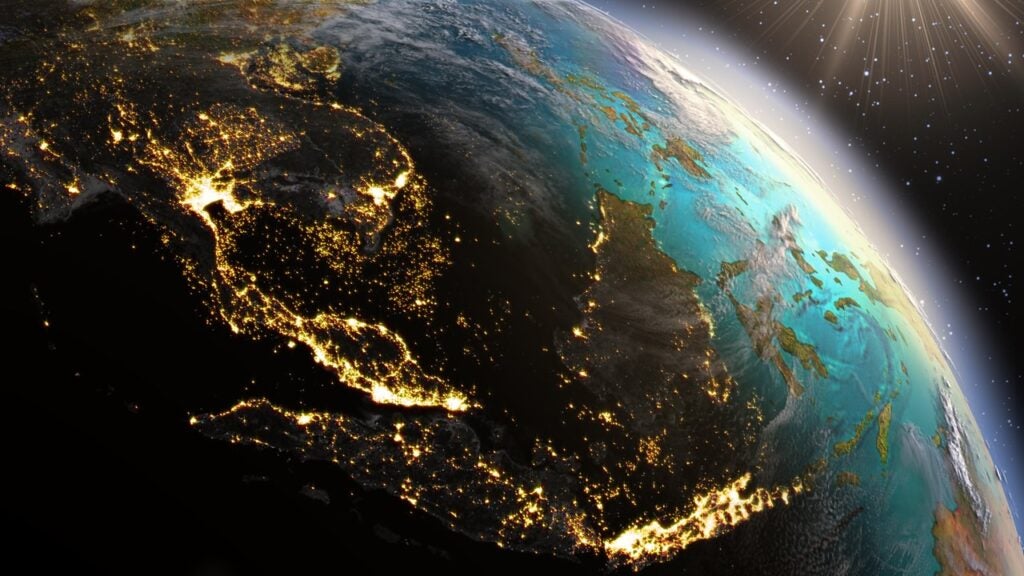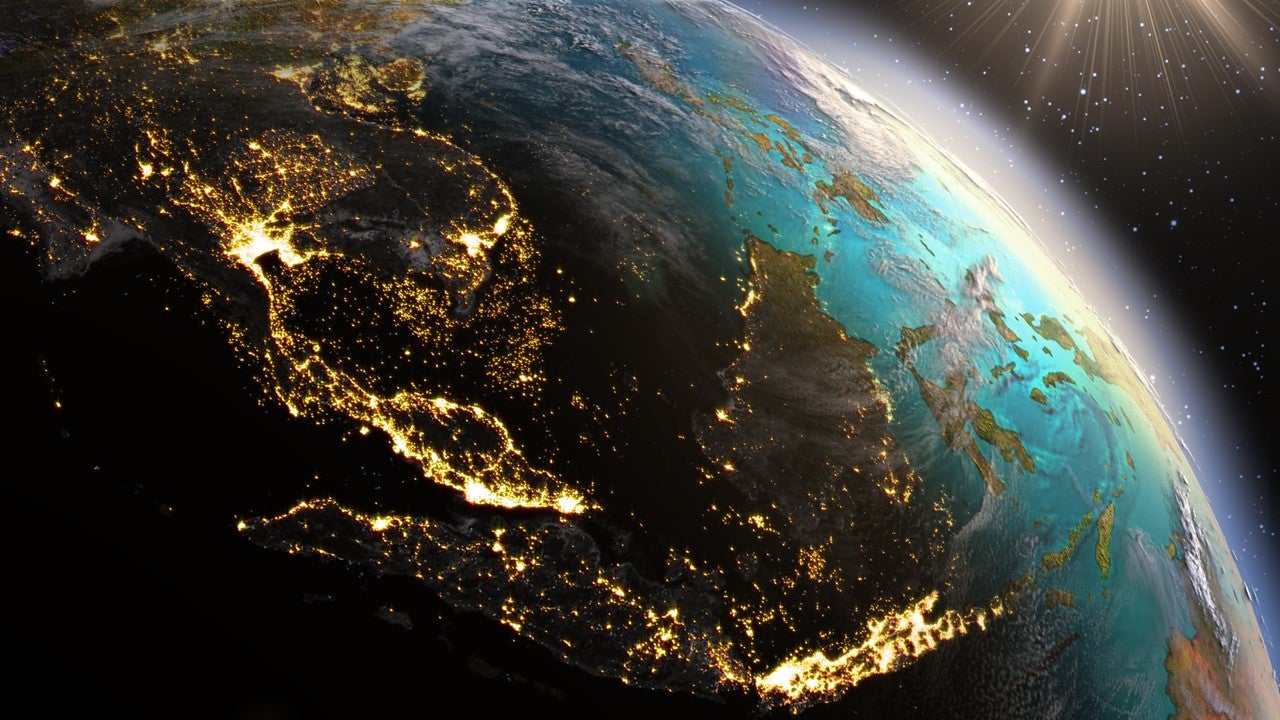Events
Asia’s Carbon Territories: Infrastructure, Environment, and Society from the Age of Imperialism to the Climate Crisis
| Date | : | 23 Feb 2024 - 24 Feb 2024 |
| Venue | : | 23 Feb @ National University of Singapore (Hybrid) & |
| Contact Person | : | YEO Ee Lin, Valerie |
| ProgrammeSpecial Panels - 24 Feb 2024 @ SAM | ||
This workshop is jointly organised by the Science, Technology and Society Cluster and the Inter-Asia Engagements Cluster at the Asia Research Institute, National University of Singapore, with support from the Singapore Art Museum, and with the German Institute for Japanese Studies (DIJ) under the DIJ-ARI research partnership on “Asian Infrastructures”.
Over the course of the past two centuries, fossil fuel combustion and carbon emissions have tremendously transformed territories. The construction of energy networks, the fueling of transportation infrastructures including ships, railways, automobiles, and airplanes, and the powering of industrialization and urbanization have reorganised the modern economy as we know it. This carbonization of territory—having fossil fuels and the related emissions coursing through and significantly altering space, environment, and society—has been studied by scholars using concepts such as coalonization, petroleumscape, carbon democracy and carbon technocracy. By “following the carbon” (to borrow Timothy Mitchell’s famous phrase), these scholars have shown that carbonization through the extensive use of coal, petroleum and natural gas has been inextricably linked to the emergence and expansion of territorial entities at different scales, including empires, modern nation-states, and megacities. In our workshop, we therefore understand the emergence of modern territory in Asia as intimately related to the energy transitions to fossil fuels.
However, in the past few decades, the growing climate crisis has led to multi-stakeholder efforts to reduce carbon emissions as a means of mitigating global warming, ocean acidification, and related problems. Yet again, territory, albeit in new ways, is closely related to fossil fuel usage and carbon emissions, serving to govern climate change at various points in the sink-source cycle. Such recent modes of territorialization of carbon include calculative practices by state and non-state actors, local and global organizations that measure carbon and distribute the responsibility of carbon governance or avoid blame for emissions. These quantification measures for tracing carbon at multiple scales have transformed sovereign notions of territoriality and their resource management regimes.
This workshop aims to address power configurations, inequalities, and unevenly distributed vulnerabilities and responsibilities across territories through understanding old and new forms of carbon colonization. Focused on Asia, it is concerned with the territorialization of carbon-based fuels and the governance of carbon sources and sinks (ranging, for example, from the imperial expansion of colonial coal mines and railway systems to the naturalization of the coastal environment to absorb atmospheric carbon dioxide). It also examines how carbon may be de-territorialized by the state and other actors (such as through the obfuscation of polluted energy hinterlands and the prevailing failure to inventory and assign responsibility for cross-border flows of emissions outside sovereign territories). Scrutinizing the trajectory from the historical formation of energy infrastructure to contemporary carbon-neutral policies enables us to understand the social, political, and ecological consequences of the complex interactions between the rise and demise of fossil fuels and the related processes of territorialization and deterritorialization. Encouraging interdisciplinary knowledge production between historians, anthropologists, sociologists, geographers, and architects, among many others, our workshop hopes to draw a comprehensive picture of the carbonization and decarbonization of Asia.
Through theoretical contributions and specific case studies, the papers of the workshop will help us to explore our guiding questions:
- How have human interventions into the carbon cycle, from the industrial use of fossil fuels (carbonization) to the construction or protection of existing carbon sinks (decarbonization), shaped territories across different scales? How have territorial arrangements shaped these processes of carbonization and/or decarbonization?
- Are processes of carbonization and decarbonization in Asia distinct from other regions in the world? How could we analyze commonalities in Asian approaches as methods to challenge or complement West-centered understandings of carbon territories?
- How has the territorialization of carbon changed over time? What can we learn from these shifting temporal orderings of carbon?
- How do we approach planetary, global, supranational, transnational, national, subnational, regional, urban, local, and other scalar dynamics in the (de)territorialization of carbon?
- How do we think of the carbon-laden present in relation to the different temporal dynamics of the decades, centuries and millennia in both human time and deep time?
- How do we rethink contemporary carbon-neutral policy based on historical analysis of the human-made carbon cycle?
EVENT DETAILS & REGISTRATION
23 Feb 2024 (Fri) | 09:15 – 17:30
National University of Singapore (NUS) | In-person & Online
Seminar Room AS8-04-04, AS8, Level 4, 10 Kent Ridge Crescent, Singapore 119260
24 Feb 2024 (Sat) | 10:15 – 17:15
Singapore Art Museum (SAM) | In-person
Tanjong Pagar Distripark, 39 Keppel Road #03-07, Singapore 089065
WORKSHOP CONVENORS
Assoc Prof Jiat-Hwee Chang | Asia Research Institute & Department of Architecture, National University of Singapore
Dr Stefan Huebner | Asia Research Institute, National University of Singapore
Dr Michelle Miller | Asia Research Institute, National University of Singapore
Mr Kenneth Tay | Singapore Art Museum
REGISTRATION
Registration is closed, and instructions on participating in this hybrid workshop have been sent out to registered attendees. Please write to valerie.yeo@nus.edu.sg if you would like to attend the event.



